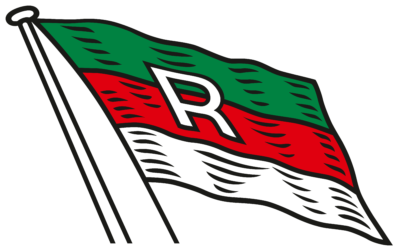


















The Rickmers History
For more than 185 years and five generations, the Rickmers family have been active as entrepreneurs in shipping and other industries. Each of these generations had particular challenges to overcome – and their own successes to celebrate. Their history was shaped by the experience of three wars and a host of international, political and economic upheavals – and continuously having to start over again…
1834
Rickmer Clasen Rickmers, born in 1807 on the North Sea island of Helgoland, opened a shipbuilding workshop in Bremerhaven on the Lower Weser. This small business developed into Rickmers’ shipyard and, later on, into a shipping and trading company with operations worldwide.
1848
Rickmers launched the brig BASSERMANN, a ship built in his shipyard for his own account. This laid the foundations for his shipping company, which he expanded by building other ships for his own account in his shipyard.
1872-1878
Rice had great significance as return cargo on routes from East Asia to Europe and became the most valued good on transports in the 1870s. In order to ensure its distribution in Europe, R. C. Rickmers took a share in the Bremen-based milling company Ichon & Co. In 1878 – shortly after the complete takeover – the mill’s name changed from Ichon und Rickmers to Rickmers Reismühlen, making it the largest rice mill operation in Germany.
1889
Andreas, Peter and Willy Rickmers amalgamated their father’s companies to create Rickmers Reismühlen, Rhederei und Schiffbau AG, with headquarters in Bremen. The Rickmers shipyard in Geestemünde became a subsidiary of the limited company (AG). In the same year, HELENE RICKMERS – the Rickmers Rhederei’s first steamship – was built with a hulk of steel and a steam engine.
1895
By putting five newly built cargo steamers into service with the Rickmers fleet, a regular service to East Asia was opened. Ships now travelled regularly from Bremerhaven and Hamburg to Japan via Antwerp, Shanghai and Hong Kong under the Rickmers flag. This service was soon established under the name of Rickmers-Linie.
1899
Rickmers opened the first German service on the upper Yangtze River together with the retailer Melchers & Co. While that area of the upper Yangtze was regarded as extremely economically advantageous, it was also difficult territory for shipping since the river was not only shallow but also had a strong current with many rapids.
1912
As CEO, Paul Rickmers decided to move the head office from Bremerhaven to Hamburg. Furthermore, the name Rickmers Reismühlen Rhederei und Schiffbau AG was altered to Rickmers Rhederei und Schiffbau AG. Thus, the company’s new orientation was also represented in its new name.
1948-1955
The first vessel to be launched after the end of the war was a fishing cutter. The construction of larger units in Germany was banned by the Potsdam Agreement. Rickmers’ first post-war ship was purchased from England. It took until 1955 before the Rickmers-Linie finally could relaunch its service to China and the Far East.
1958
Claus Rickmers travelled to China where he became the first shipping executive from the Western world to be received by prime minister Zhou Enlai. From then on, he developed contacts with numerous business partners in the People’s Republic of China.
1979
On 29 October, a Rickmers ship was the first to reach the port of Hamburg with a load of containers for door-to-door shipping from China. This marked the dawn of a new era in transport logistics for the People’s Republic of China.
2004
The companies and shareholdings surrounding Rickmers Reederei, Rickmers-Linie and Atlantic were integrated as a corporate group under the umbrella of Rickmers Holding AG.
2010-2011
Rickmers took delivery of eight 13,100 TEU container vessels, the largest ships in the fleet.
2013
Rickmers-Linie launched its westbound round-the-world service, connecting areas of economic growth in Asia and South America and then on to North America. The America–Asia westbound service established in 2006 formed a part of this new service.
2015
The Asian Spirit Steamship Company was founded as the new shipping spin-off of the family of Bertram R. C. Rickmers. The mission was to build and provide the best-in-class fleet of vessels in the smaller feeder-type sector.
2017
Ten years after the global financial crisis of 2007 and followed by an enormous shipping crisis for almost a decade, Rickmers Holding AG and its affiliates underwent a financial restructuring.
2019
The first two out of a program of eight Eco16 container feeder vessels were delivered from the Mawei shipyard in China. The Eco16 container vessel stands for a new design concept incorporating all requirements from charterers under the forefront of ecological and economical aspects for future-proof tonnage. A new hull design and modern engine technology lead to outstanding cargo intake and lower fuel consumption, giving a competetive advantage to our customers.
Today
BRICK HOLDING is the flagship out of all of company founder Bertram R. C. Rickmers’ corporate investments. Creating new assets through innovation and entrepreneurial spirit as well as preserving and developing existing assets – this is the challenge BRICK HOLDING is committed to. The company invests in various businesses as shipping, real-estate and offshore wind services and stands out primarily for its reliability, expertise and numerous international contacts.
